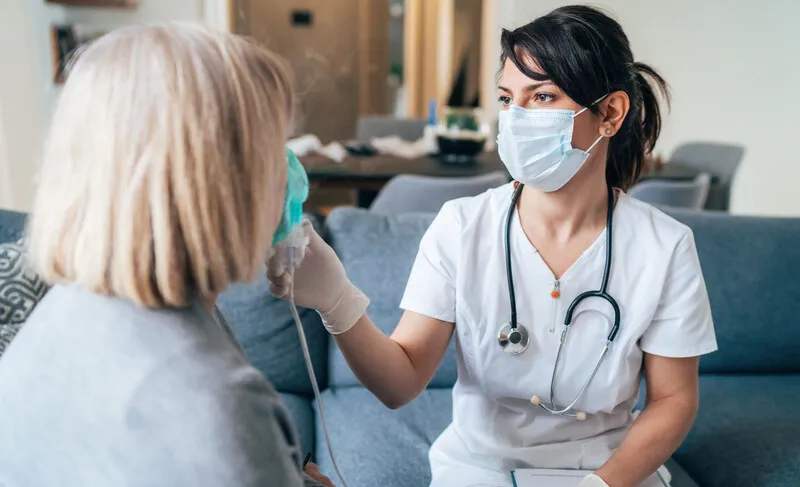
Photo: Filadendron/Getty Images
Humana and UnitedHealth Group have agreed to greater oversight of in-home clinical assessments made by nurses in the Medicare Advantage program.
Humana told congressional staffers it is willing to back payment limits on diagnoses recorded by nurse practitioners who visit enrollees in their homes, according to The Wall Street Journal.
These payments are worth billions of dollars, the report said.
WHY THIS MATTERS
On Friday, UnitedHealth posted a statement saying it supports deploying annual audits focused on in-home clinical visits.
"UnitedHealth Group has long advocated for thoughtful, forward-looking solutions to modernize and strengthen Medicare Advantage, especially in the areas around accountability, transparency and clinical value," the statement said. "We look forward to partnering with policymakers and external stakeholders to develop solutions that reduce overall healthcare costs, provide stability for the MA program and promote access to high-quality, coordinated care for seniors."
Solutions include ensuring beneficiaries who receive new diagnoses during an in-home clinical visit have follow-up care within specific timeframes and standards, UnitedHealth said.
A new diagnosis identified during an in-home health risk assessment would be excluded unless it had been reviewed by a provider within 18 months or within the CMS data submission window, UnitedHealth said.
UnitedHealth and Humana reportedly account for close to half of all MA enrollees nationwide.
THE LARGER TREND
In October 2024, the Department of Health and Human Services Office of Inspector General released a report saying in effect that there was no follow-up on diagnoses recorded during in-home risk assessments.
Medicare Advantage plans receive higher risk-adjusted payments from the Centers for Medicare and Medicaid Services for enrollees who are sicker.
"However, taxpayers fund billions of dollars in overpayments to MA companies each year based on unsupported diagnoses for MA enrollees," the OIG said. "Unsupported diagnoses inflate risk-adjusted payments and drive improper payments in the MA program."
Diagnoses reported only on enrollees' health risk assessments and linked chart reviews, and not on any other of the service records examined by the OIB, resulted in an estimated $7.5 billion in MA risk-adjusted payments for 2023, the report said.
"The lack of any other follow-up visits, procedures, tests, or supplies for these diagnoses in the MA encounter data for 1.7 million MA enrollees raises concerns that either: the diagnoses are inaccurate and thus the payments are improper or enrollees did not receive needed care for serious conditions reported only on HRAs or HRA-linked chart reviews."
Email the writer: SMorse@himss.org